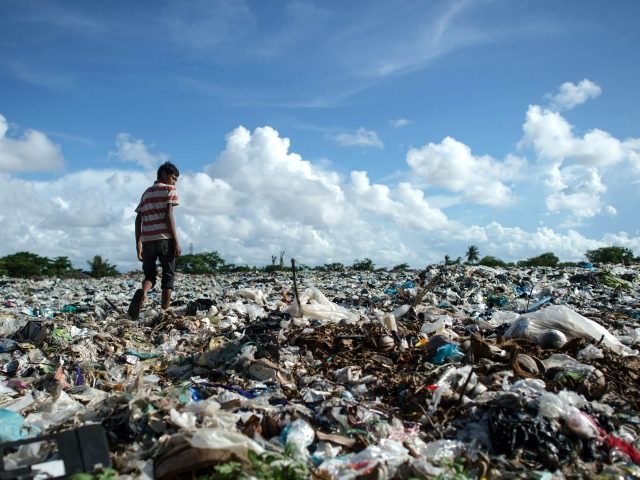The woke Lancet medical journal continues its crusade of political correctness, tying together gender and climate change in its latest issue.
“Climate change affects human health and wellbeing with differential impacts on populations and regions,” the journal alleges. “For example, climate change disproportionally affects girls and women and can amplify conflict and violence in resource-deprived environments.”
Not content with trying to connect these two issues, however, the Lancet goes on to bring in other non-medical questions, namely that of immigration.
“The way climate change exacerbates economic and social disparities underscores the role of migration in response to climate pressures,” it declares. “Movement or staying in place, whether forced or voluntary, have important immediate and downstream implications for the growing numbers of people affected.”
The article passes seamlessly from the bogey man of climate change and carbon dioxide emissions to the actual danger of pollution, as if they were two sides to the same coin rather than two virtually unrelated questions.
Individuals who do not have shelter “are exposed to an array of climate-related risks, including air pollution, extreme heat and cold, and foodborne, waterborne, and vectorborne diseases,” the journal correctly notes.
In 2017, on the other hand, the Lancet convincingly showed pollution-related diseases were responsible for an estimated 9 million premature deaths in 2015, or some 15 times more than from all wars and other forms of violence combined.
Pollution is not only the largest environmental cause of disease and premature death in the world today, the study found, but diseases caused by pollution were responsible for roughly 16 percent of all deaths worldwide — “three times more deaths than from AIDS, tuberculosis, and malaria combined and 15 times more than from all wars and other forms of violence.”
While as yet there has not been a single documented case of a person being killed by carbon dioxide-related “global warming,” real pollution of air, water, and land is killing an average of 25,000 people every day across the globe, the Lancet found.
Unfortunately, the following year the Lancet was back to its old tricks, publishing a disingenuous editorial falsely attributing seven million deaths from air pollution to “climate change.”
“The effects of climate change are inextricably entwined with health,” the May 12 editorial begins, “ranging from the WHO estimate of 7 million deaths from breathing polluted air indoors and outdoors” to a series of other harmful consequences.
The World Health Organization (WHO) report to which the editorial referred made no mention of climate change and spoke only of the adverse health effects of polluted air, a completely different phenomenon.
According to the WHO report, “around 7 million people die every year from exposure to fine particles in polluted air that penetrate deep into the lungs and cardiovascular system, causing diseases including stroke, heart disease, lung cancer, chronic obstructive pulmonary diseases and respiratory infections, including pneumonia.”
All of these potentially fatal pathologies are caused by “exposure to fine particles in polluted air” and not by global warming.
In its infographic on the causes of air pollution, the WHO listed six sources of dangerous fine particulate matter, none of which is related to climate change. The six sources of air pollution are industry and energy supply, dust, agricultural practices, transport, waste management, and household energy.
Among the six solutions proposed by WHO for combatting air pollution, not one of them touched on carbon dioxide emissions, for the simple reason that CO2 is not a pollutant and is not harmful to human health. Unlike pollutants, carbon dioxide is odorless, colorless, and most importantly, non-toxic.
The WHO database collects annual mean concentrations of fine particulate matter. Those that pose “the greatest risks to human health” are sulfate, nitrates, and black carbon, they observed.
The overtly political editorial sought to persuade a naïve public to enact policy to reduce CO2 emissions by making them think this will curb deadly air pollution, while it does not.
“Climate change legislation is a central concern across government at all levels, and is not solely about the changing climate, but is embedded in public health policies,” the editors contended.

COMMENTS
Please let us know if you're having issues with commenting.